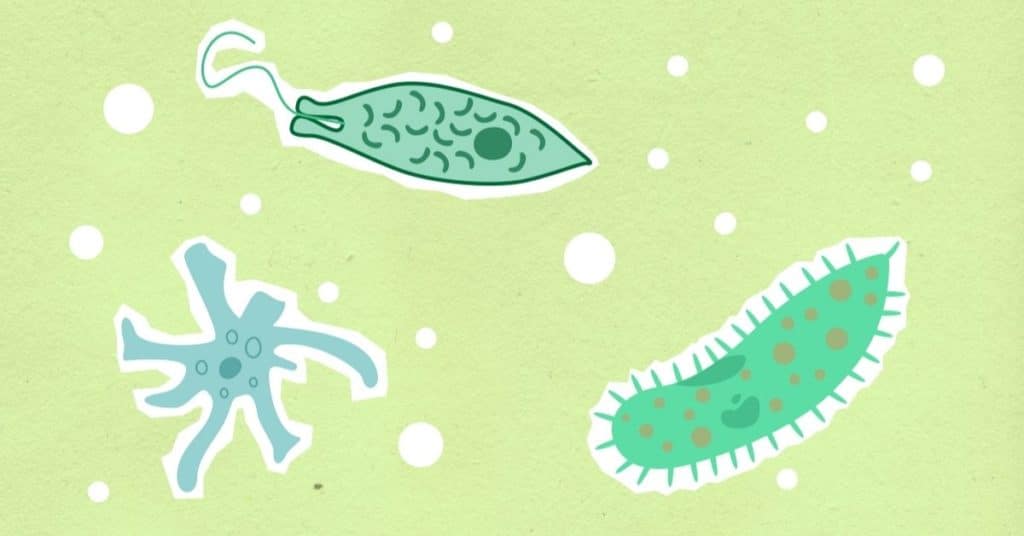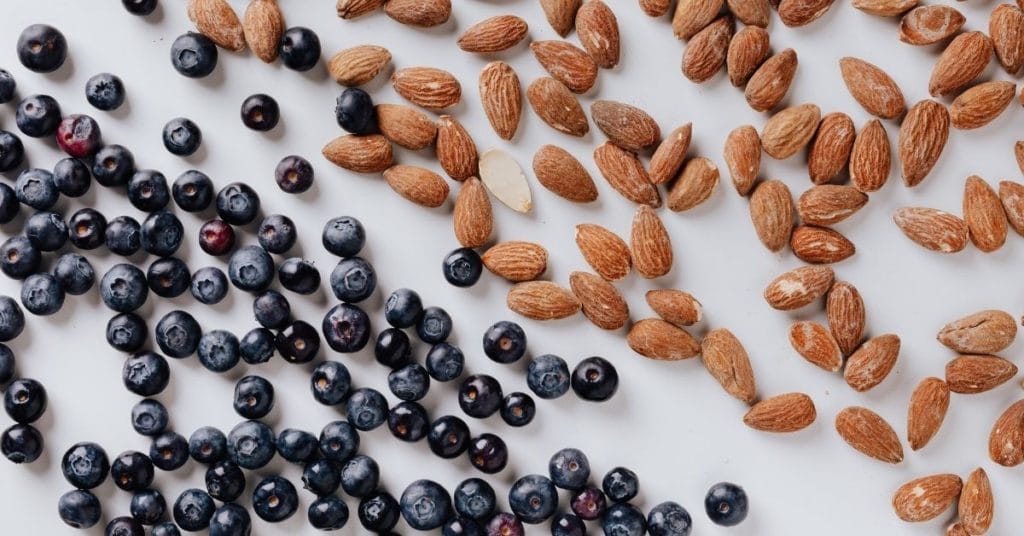
Gut Health’s Correlation with COVID-19
In 2020, we were all hopeful that COVID-19 would be a temporary viral wave. In 2021, we were hopeful that we had the ingredients to stop the wave. As we begin 2022, we are realizing that COVID-19 and its many variants might be here to stay and we need to equip ourselves for this eventuality. Scientists have developed vaccines to help us minimize viral infections. In addition to vaccines, it’s also important to look at the human body and its natural mechanism to fight disease. This natural mechanism that I’m referring to is the gut microbiome. Microbiome refers to a collection of microorganisms. There are beneficial bacteria all over the body. This includes our intestine, lung, skin, and eyes. Don’t worry; this bacteria does not require hand sanitizer! This is good bacteria that helps protect its host. These bacteria often interact and support one another. For example, the bacteria found within your intestine impact the bacteria found within your lungs and vice versa. The good bacteria also support digestion, metabolism, neurobehavior and the immune system. So, can good gut health protect you from COVID-19?
Well, let’s start with this question: what is the relationship between the gut microbiome and COVID-19? Let me be very clear. There is no current evidence that suggests that a strong gut microbiome, equivalent to good gut health, can prevent COVID-19. However, a sturdy gut microbiome enhances the immune response. A strong immune response is key for fighting infection. Individuals at greatest risk for COVID-19 are the elderly, immune-compromised and those with co-morbidities such as type 2 diabetes and cardiovascular disease. It is also known that these populations tend to have less diverse microbiota or even dysbiosis, an imbalance in bacteria. This has led many researchers to infer that nurturing the gut bacteria to reduce dysbiosis may contribute to the healing process thus reducing the severity of disease.
A sturdy gut microbiome enhances the immune response. A strong immune response is key for fighting infection.
Why are we talking about gut bacteria? In 2020, Wu et al (1) noted that SARS-Cov-2 RNA was found in the stool of patients with COVID-19. The same year, Chan et al (2) noted that this finding as well as symptoms of GI distress indicate a potential interaction between the gut and respiratory infections. This gut lung axis interaction is likely related to gut microorganisms. We know that an imbalance of gut bacteria plays a role in cardiovascular disease, type 2 diabetes, and inflammatory bowel disease. Mosca et al (3) noted that loss of good gut bacteria leads to imbalance and may be tied to other disease states. If this is true, why couldn’t it play a role in COVID-19 too? The relationship between gut health and COVID-19 needs further analysis.

How Can You Improve Your Gut Microbiome?
What does this gut bacteria mumbo jumbo mean to you? It’s time to make your gut a priority even if you don’t have gut symptoms. Diarrhea, constipation, gas, and bloating are not the only signs of gut distress. Migraines, skin irritation, depression, elevated cholesterol, and/or elevated blood sugar could be the gut signaling for help.
What can you do? Gut bacteria is dependent on genetics, environment, and diet. You can’t alter your genetics and environment isn’t always an easy change to implement. Diet is the best place to start if you want to improve your gut health and in turn your immune response to COVID-19.

My Top Diet Tips for Improved Gut Health
- Eat colorful foods. Choose foods that are green, orange, red, blue, purple, yellow and brown. Fruits and vegetables are the simplest way to add color and subsequently expand the vitamin and mineral density of your diet.
- Include prebiotic foods in your diet. Prebiotic foods are the main source of nutrition for gut bacteria. These are found in complex carbs, fiber and resistant starch. My daily prebiotic food sources include garlic, onions, and flaxseed. Check out my video on IG for more information about prebiotics.
- Include polyphenols in your diet. Poly – what? These food types are challenging for the gut to digest. This means they make their way to the colon and act as food to support good bacteria. Almonds, blueberries, broccoli, cocoa, green tea, onions and red wine are easily accessible polyphenol food sources.
- Include probiotics in your diet. Probiotics are the actual bacteria. You don’t need to pay for a supplement to increase your bacteria diversity. Fermented foods are an affordable source of probiotics. Look for cultured yogurt, apple cider vinegar, kefir, tempeh, pickles, and sauerkraut. These foods will add flavor to your diet and boost your probiotic count.
- Avoid artificial sweeteners. Artificial sweeteners, such as aspartame, may cause an increase of the less favorable bacteria and establish an imbalance of bacteria within your intestine.

How Can You Make Simple Changes to Your Daily Living to Help Support Intestinal Bacteria?
- Play with animals. Dogs are more than just a furry companion. Animals gather bacteria from the environment and then share it with you. This exposure to bacteria helps support your immune system.
- Limit hand sanitizer. These solutions kill good bacteria as well as bad bacteria on the skin. The good bacteria protect us. Use a solution of mild soap and water and vigorously wash your hands to eliminate the less favorable bugs.
- Take antibiotics only when necessary. Don’t reject an antibiotic regimen when you have an infection. However, don’t supplement on a whim. Antibiotics kill the good and bad bacteria. If you must take an antibiotic, it’s important to support your intestine with probiotics and prebiotics to help the good bacteria thrive again.
- Make time for sleep. A 2014 study (4) suggests there may be a link between the circadian rhythm of the host and the circadian rhythm in the bacteria. Sleep might be another integral environmental component of the diversity and balance of gut bacteria. Either way, sleep plays a role in overall health. Aim for 7 hours of sleep per day and the body’s favorable bacteria might benefit.
- Do not smoke. It’s never too late to quit smoking. Here’s another reason to make this a 2022 goal. A 2018 review (5) showed that smoking decreases the levels of good bacteria in the intestine. It is difficult enough to maintain a healthy gut microbiome. If you feel the urge to smoke, go for a walk or snack on a prebiotic food. Both choices will support a strong gut microbiome.
If you need help navigating your gut health during this difficult increase of COVID-19 cases, I am here for you. I specialize in helping folks build healthier lives and also deal with long haul symptoms after being exposed to COVID-19. Contact me with any questions or view more about my Post COVID-19 Recovery Services here.
Sources:
- Wu Y. Prolonged presence of SARS-CoV-2 viral RNA in faecal samples. Lancet Gastroenterol. Hepatol. 2020;1253(20):20–21. doi: 10.1016/S2468-1253(20)30083-2. [PMC free article] [PubMed] [CrossRef] [Google Scholar]
- Chan J.F.W. A familial cluster of pneumonia associated with the 2019 novel coronavirus indicating person-to-person transmission: a study of a family cluster. Lancet. 2020;395(10223):514–523. doi: 10.1016/S0140-6736(20)30154-9. [PMC free article] [PubMed] [CrossRef] [Google Scholar]
- Mosca A., Leclerc M., Hugot J.P. Gut microbiota diversity and human diseases: should we reintroduce key predators in our ecosystem? Front. Microbiol. 2016;7(March):1–12. doi: 10.3389/fmicb.2016.00455. [PMC free article] [PubMed] [CrossRef] [Google Scholar]
- PLoS One. 2014; 9(5): e97500.Published online 2014 May 21. doi: 10.1371/journal.pone.0097500
- Arch Microbiol. 2018 Jul;200(5):677-684. doi: 10.1007/s00203-018-1506-2. Epub 2018 Apr 6.

